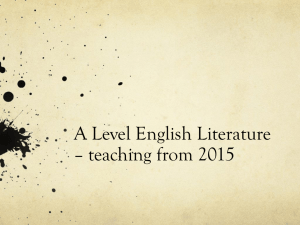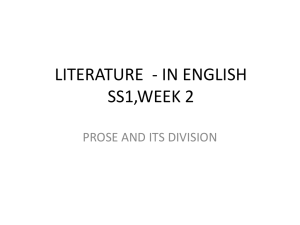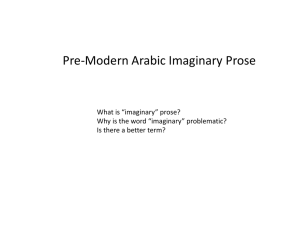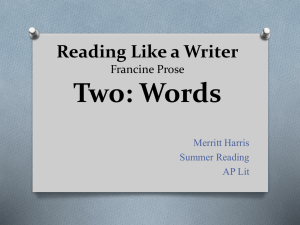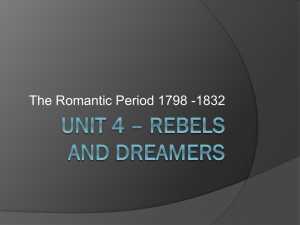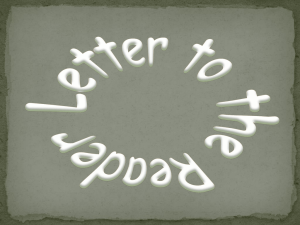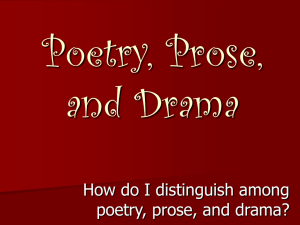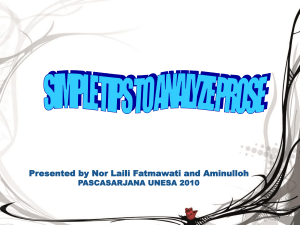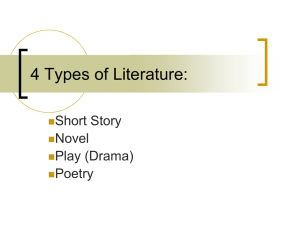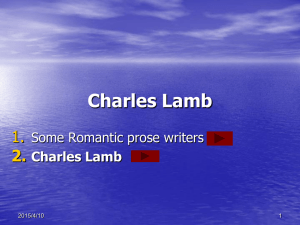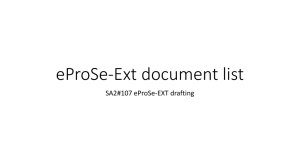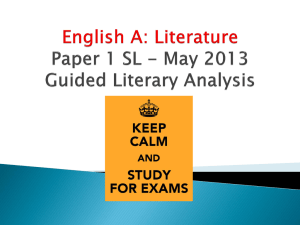Understanding Prose: Types, Features, and Examples
advertisement
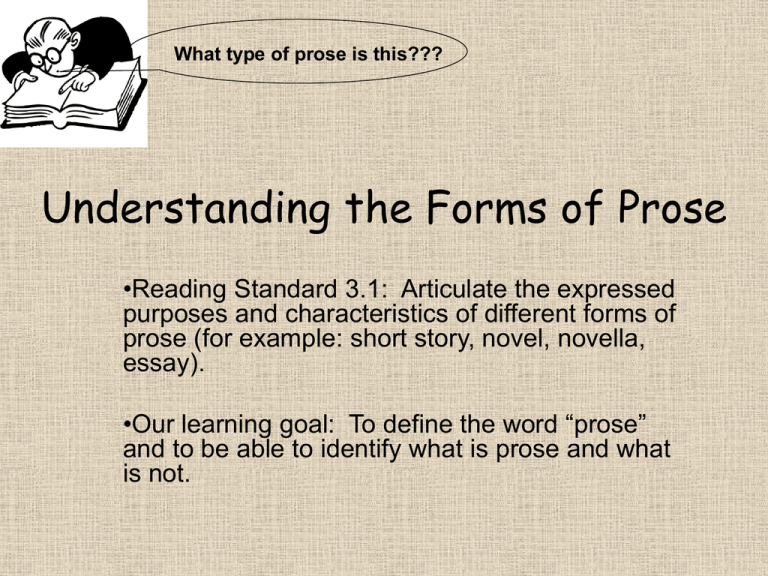
What type of prose is this??? Understanding the Forms of Prose •Reading Standard 3.1: Articulate the expressed purposes and characteristics of different forms of prose (for example: short story, novel, novella, essay). •Our learning goal: To define the word “prose” and to be able to identify what is prose and what is not. Reading Standard 3.1: Articulate the expressed purposes and characteristics of different forms of prose (for example: short story, novel, novella, essay). • WHAT (today’s learning goal): To define the word “prose” and to be able to name and identify different types of prose. • WHY: To help you anticipate what you’ll find in the text. • HOW: Show the meaning of the word with a gesture and identify whether something is prose using thumbs up/thumbs down. The word “prose” comes from the Latin phrase prosa oratio meaning "straightforward or direct speech" (without the ornaments of poetic verse) Definition of Prose • Prose is ordinary, straightforward writing. Prose’s Purpose • Prose is a form of writing that is meant to : – Inform – Entertain – Express – Persuade Text Features of Prose Written using paragraphs May contain dialogue Can be either fiction or nonfiction Can have headings and/or subheadings Can be accompanied by graphics (charts, photos) A few examples of prose: • • • • • • Your textbook chapter A novel A magazine article A web article A newspaper article A note from your friend Prose is not…. • Poetry • Music • Rhyming Two Types of Prose Prose Fiction Nonfiction Made-up stories Real facts Fiction • Fiction has characters who move through a series of events (the plot) and work through a conflict, which leads to a climax and a resolution. – Short story: Anywhere from a few pages to twenty pages long. – Novel: A hundred or more pages long. – Novella: A short novel (under a hundred pages) Nonfiction • Nonfiction relates facts about real people, places, things, and events. – Essay: a short piece that discusses a limited topic. – A magazine article – A biography Is it Prose? Thumbs up/thumbs down Mary Had a Little Lamb Your Black History Essay Rikki-Tikki-Tavi Our National Anthem Is it fictional prose Is it nonfictional prose Science Fiction Novel Historical Fiction Autobiography Magazine Article Biography Reading Standard 3.1: Articulate the expressed purposes and characteristics of different forms of prose (for example: short story, novel, novella, essay). • WHAT (today’s learning goal): To define the word “prose” and to be able to name and identify different types of prose. • WHY: To help you anticipate what you’ll find in the text. • HOW: Show the meaning of the word with a gesture and identify whether something is prose using thumbs up/thumbs down.
